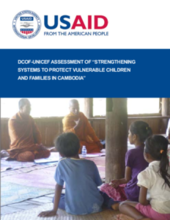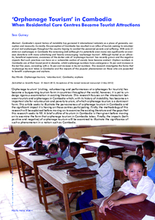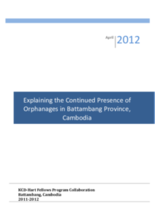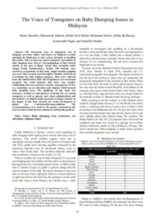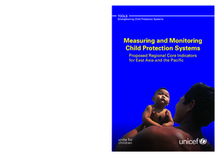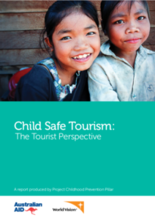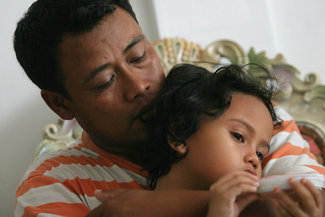

Displaying 631 - 640 of 752
This article sheds light on the money-making industry of orphanages and orphanage voluntourism in Cambodia.
Throughout Cambodia well-intentioned volunteers have helped to create a surge in the number of residential care homes as impoverished parents are tempted into giving up their children in response to promises of a Western-style upbringing and education. Despite a period of prosperity in the country, the number of children in orphanages has more than doubled in the past decade, and over 70 per cent of the estimated 10,000 'orphans' have at least one living parent.
This People & Power documentary from Al Jazeera investigates the orphanage tourism industry in Cambodia.
This video showcases the Family-based care program of Save the Children and its partners in Indonesia.
This report describes the outcomes of the joint DCOF/UNICEF visit to Cambodia to assess a three-year, DCOF-funded project on Strengthening Systems to Protect Vulnerable Children and Families in Cambodia.
This research investigates the forms that ‘orphanage tourism’ takes in Cambodia and the impacts of this popular phenomenon on those who are purported to benefit: orphanages and orphans.
This qualitative research study seeks to better understand some of the reasons for residential care expansion in the province of Battambang, Cambodia. The study aims to identify why children are sent to orphanages and understand the attitudes of those stakeholders who are influencing the rise in institutions in the province.
This article describes research conducted in Malaysia on young people’s perceptions of “baby dumping,” or the abandonment of newborns and infants, a phenomenon that has become a “serious issue” in Malaysia.
This publication proposes a framework of core indicators for measuring and monitoring national child protection systems in the East Asia and Pacific region.
This report summarises findings from a recent online survey conducted with over 300 international travellers to Cambodia, Lao PDR, Thailand and Vietnam.

